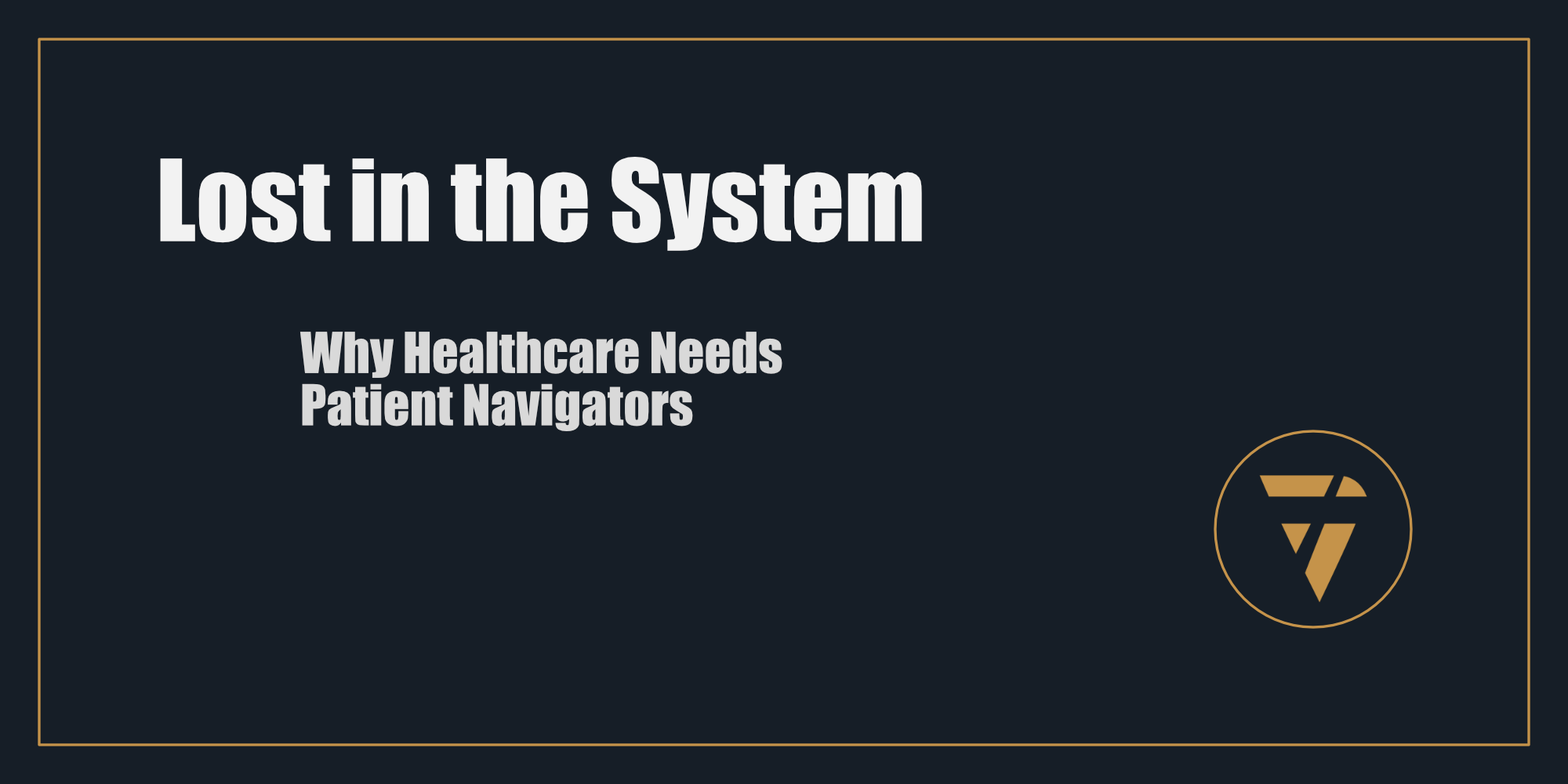Lost in the System
Why Healthcare Needs Patient Navigators

What If Healthcare Could Be Simple Again?
Imagine being diagnosed with a serious condition. Instead of focusing on healing, you’re thrust into a whirlwind of referrals, tests, insurance approvals, and endless waiting. For many, this chaos defines their healthcare journey, and it’s costing lives, money, and trust in the system.
The problem isn’t just medical; it’s structural. Healthcare, despite its advancements, often lacks the co-ordination necessary to guide patients effectively. But there’s a solution, patient navigators.
Why Patient Navigators Matter
Patient navigators are the unsung heroes of modern healthcare. Acting as guides, advocates, and problem-solvers, they ensure no one gets lost in the system. From scheduling appointments to explaining complex diagnoses, these professionals provide clarity and continuity in a fragmented landscape.
Steve Guimond has helped 500 patients in nearly 7 years as a patient navigator
The Results Speak for Themselves:
- Patients with navigators experience faster diagnoses and treatments.
- Hospitals reduce costs through fewer unnecessary ER visits and readmissions.
- Equity improves as navigators address barriers faced by underserved communities.
The Cost of Fragmentation
Consider the ripple effects of a system without navigators:
- Delays in Care: Patients wait weeks for appointments, often missing critical windows for effective treatment.
- Administrative Overload: Doctors and nurses are bogged down by paperwork instead of focusing on care.
- Skyrocketing Costs: Miscommunication and inefficiencies lead to repeated tests, extended hospital stays, and avoidable complications.
We’re already spending billions on healthcare inefficiencies. Why not redirect those resources toward solving the problem at its root?
A Vision for a Navigator-Led Healthcare System
Integrating patient navigators into every level of healthcare isn’t just an enhancement, it’s a revolution. Imagine a system where every patient, regardless of income or background, has a guide to:
- Co-ordinate Care: Seamlessly connect specialists, labs, and primary care providers.
- Break Barriers: Address language, transportation, and financial hurdles.
- Empower Patients: Provide education and emotional support throughout the journey.
This isn’t hypothetical. Pilot programs in oncology, chronic disease management, and maternity care have shown dramatic improvements in outcomes and cost reductions.
What’s Next?
The time for patient navigation is now. Policymakers, healthcare providers, and insurance companies must step up to:
- Expand Navigator Programs: From pilot projects to system-wide integration.
- Leverage Technology: Use AI and electronic health records to streamline navigation.
- Commit to Equity: Ensure access for underserved populations.
The Human Impact
A single story can speak volumes. Sarah, a breast cancer survivor who credits her recovery to a navigator who ensured her tests were timely, her treatments were co-ordinated, and her fears were addressed. "Without her," Sarah says, "I’d still be waiting for answers."
What Can You Do?
If you’re a policymaker, advocate for patient navigator funding.
If you’re a healthcare leader, explore pilot programs.
If you’re a patient, demand guidance.
The future of healthcare isn’t just about advanced technology or cutting-edge treatments. It’s about ensuring every patient has a clear path to healing. Patient navigators are the way forward.
What barriers have you faced in the healthcare system? Share your story. Let’s start a conversation about making healthcare work for everyone.
This Substack is reader-supported. To receive new posts and support my work, consider becoming a free or paid subscriber.
This is what I’m working on. Tell me what you think, I enjoy the conversation! Subscribe and follow the work in real time.
Thanks!
B
Healthcare isn’t failing because of lack of care, it’s failing because of lack of clarity. Patient navigators bridge the gap, turning chaos into coordination. The cure for a broken system? Guidance, every step of the way.
PS -





